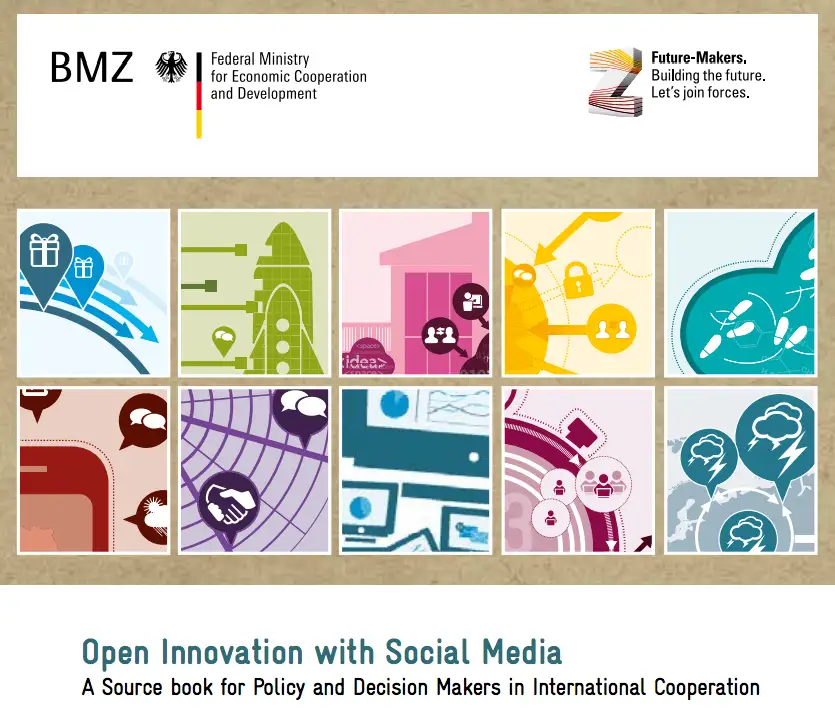Crowdfunding innovation in international cooperation

For the launch of the ebook "10 trends in open innovation", I was interviewed by Wolfgang Gumpelmaier-Mach, from the Crowdfunding Service Magazin. Wolfgang and his colleagues have contributed an exciting chapter to the publication, which of course has to do with crowdfunding.
Wolfgang: Christian, you have published the project “10 Innovations” for the GIZ and the Alumniportal Germany. Now it is publicly available as eBook. What can the readers expect?
Christian: 10 exciting chapters, which enlighten the abstract concept of innovation. The various chapters provide an overview and practical advice on how to pursue an open innovation approach. This includes an introduction to Innovation Labs, but also the important issue of financing good ideas, for example about crowdfunding or the meaning of new media and technology for social innovation. We have tried to cover a wide range of key terms such as ideas competitions, knowledge commons, hackathon, Internet of things, among others.
Wolfgang: What target groups is the publication aimed at?
Christian: First of all, at anyone who wish to experience more about the subject of open innovation in international cooperation. Each chapter is equipped with numerous examples of how organizations collaborate in a more innovative way thanks to the Internet. But also, particularly, to decision-makers in organizations, who want to know what are the experiences of these new forms of cooperation, and what consequences this has for traditional a organization. For example, one can see how startups are experimenting with open business models and are telling their business secrets in the form of open software, also what it means to work together with people around the world in one product. Or what importance can social media on internal innovation processes in organizations have; and how to build such processes systematically.
Wolfgang: I have also contributed with my colleagues from ikosom a chapter on "crowdfunding in international development". How important is this subject now?
Christian: Crowdfunding is gaining importance in the international cooperation. Some players, such as Kiva.org or Globalgiving.org have shown that peer-to-peer support can be implemented professionally and thus it represents an interesting alternative to traditional methods of financing. I see crowdfunding as part of a trend to experiment with new forms of financing, which gives a lot more to beneficiaries in the focus of the investment. Crowdfunding as well as Impact Investing are both an exciting approach that brings new actors into the international cooperation field.
Wolfgang: After a rethink, what do you think about crowdfunding still being used rather uncoordinatedly?
Christian: The numbers show that crowdfunding is still very small in the international cooperation field compared to the engagement of more traditional donors. I see many exciting projects that are being currently implemented through crowdfunding in development cooperation field. In fact, these are not necessarily coordinated, what should not be a disadvantage because of the innovation process around crowdfunding is organized much more open than in traditional development cooperations and thereby results in easier synergies. Additionally, with crowdfunding, right from the start, investors who believe in a realistic implementation need to be found. This reality check is often beneficial and might have also saved so many government-sponsored development projects from failure. But I often see this problem with crowdfunding, that the brilliance of the idea is in the foreground, instead of an innovative solution for an acute problem. Furthermore, I see with crowdfunding a wide North to South transfer of innovation and money. I would rather hope that local ideas were here much more supported because such solutions are often much more sustainable.
Wolfgang: What are the opportunities and consequences for organizations/NGOs in international cooperation?
Christian: I can see in the Open Innovation approach a new kind of international cooperation that is not limited to traditional organizations, as was often the case in the past. Nowadays, diverse actors, from individual to large organizations, can collaborate more easily. Through open innovation, especially the open source approach, ideas are spread more easily, discuss more broadly and tested earlier. Non-for-profit organizations raise here the question of what challenges should be solved only within the organization or internally. New technologies offer here a fascinating framework for cooperation that will ultimately help save resources. But as with all technology-enthusiasm, it has to be clear that technology-free solutions are often better. In addition, we must not underestimate how necessary it is to have a big cultural change in organizations to implement open innovation, contrary to the classic forms of organization.